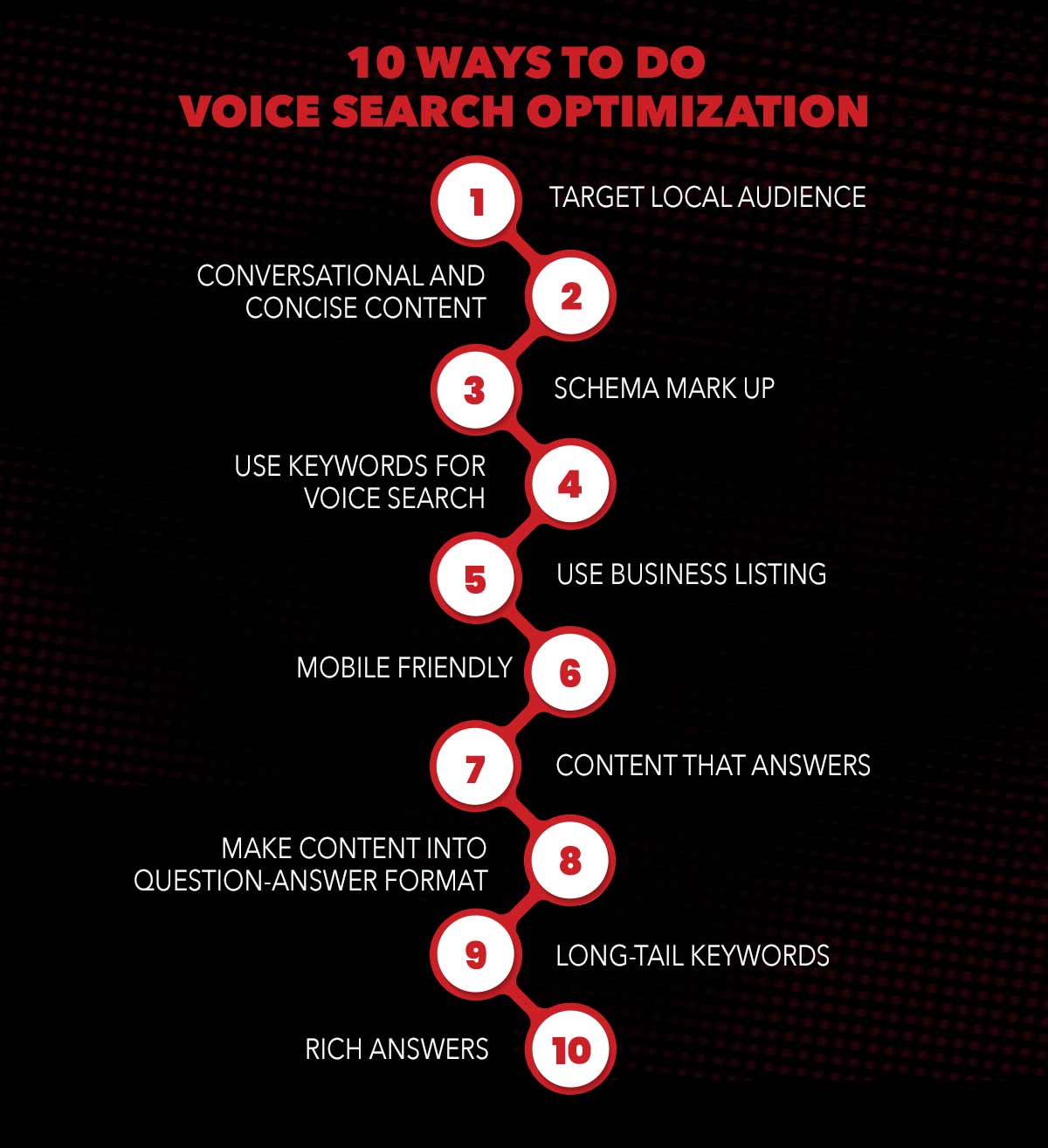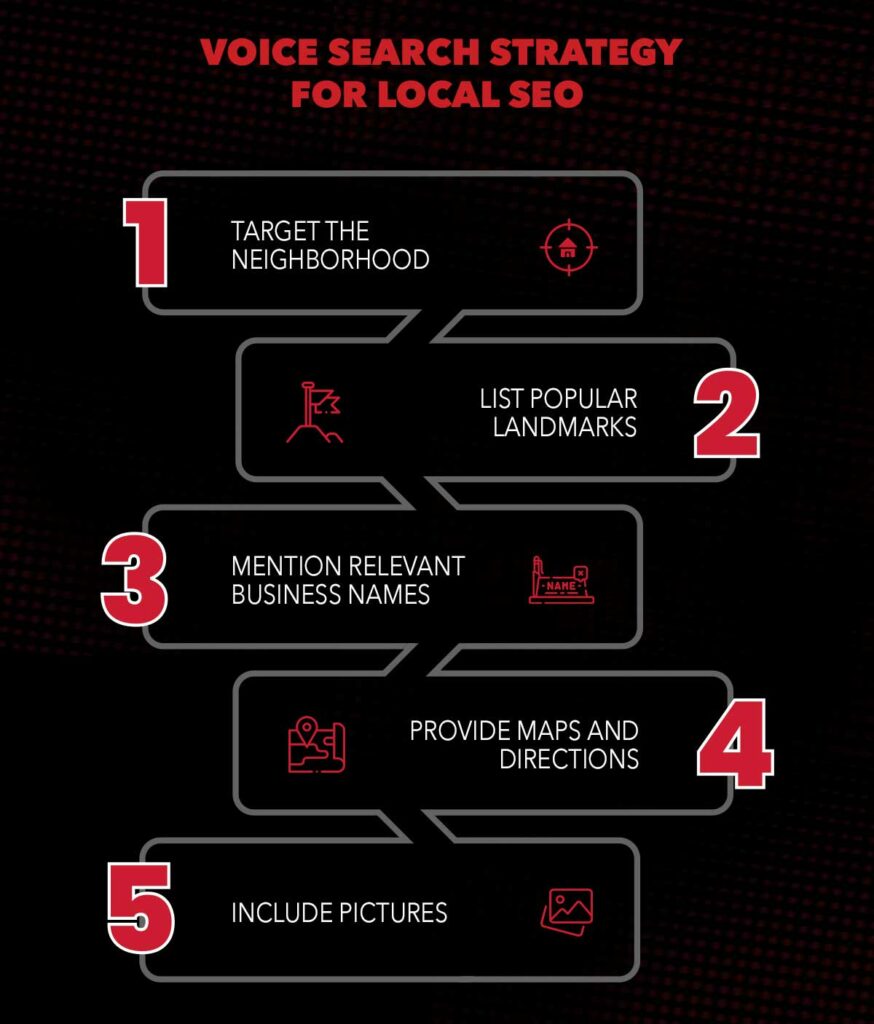Looking for a better alternative to search on your mobile phone, Then you must try voice search on Google.
It’s always a better alternative to search for something on Google using voice instead of typing.
No wonder we are seeing voice searches becoming popular globally.
In voice search, an AI-equipped device is used to recognize the voice and input the query into the search engine.
Voice recognition came in the early 1950s and has been used widely since then.
Over the past few years, there has been a steady increase in the number of voice search queries on search engines.
Many brands have incorporated this technology into their marketing strategy to attract more customers.
If you have a business- you should consider doing it too.
You will gain more visitors to your website, and in the long run, will attract more customers.
But you need to create the right content and optimize it so that your website becomes voice responsive.
If making your website voice-responsive seems intimidating to you, you can trust BrandLoom with voice search SEO tasks.
If you think you just need help with a plan and can do it yourself- we can help with that too.
Let’s see how you can optimize a website for voice search.
When do people do Google Voice Searches?
Imagine you are working outside on a hot summer day, and you need a cold beverage.
If you don’t see a local shop around, you would want to search it on Google for the nearest juice parlor.
Won’t it be hard to type the words, especially when the sun is out?
That’s when you can make use of Google voice search.
All you need to do is turn on the mike and speak out your query.
Google will give you the list of juice centers in a minute.
That’s why Google voice search is so necessary today for common people.
Why is it necessary to implement voice search optimization?
People do voice searches regularly whenever they are unable or too lazy to type their queries.
That’s why we bloggers need to make sure we can answer the queries even if it’s searched via voice.
And to do that, we need to do voice search optimization on our blogs.
Also, it’s essential for businesses to do voice search optimization efficiently to get more organic reach.
In 2020, almost 50% of the searches across the internet were via voice.
In the year, 2022, the statistics are predicted to reach about 55%.
Therefore not optimizing your blog according to the voice search can mean a loss of half of the organic traffic.
Therefore, without giving it much thought, let’s look at the ten tips on doing voice search optimization the right way.
10 Ways to do voice search optimization
To optimize the website according to voice search; you don’t have to alter your current SEO strategy.
However, you need to customize the site to provide a good user experience to people who use voice search to come to your website. Here is what you need to do:
- Target local audience
- Conversational and concise content
- Schema mark up
- Use keywords for voice search
- Use business listing
- Mobile Friendly
- Content that answers
- Make content in question-answer format
- Long-tail keywords
- Rich Answers

Voice search optimization is a way to optimize your pages to appear in voice searches.
While optimizing for voice search, you do it according to the way people conduct verbal searches.
Voice search optimization on your blog allows Google to read out a part of your blog by a voice search device.
1. Target Local Audience
Voice searches have three times more probability than text ones to be searched for local information.
For instance, imagine you are out on a sunny day and want to search for the address you are going to.
It can be hard to type all that under the sun, and therefore you will find voice typing much more convenient.
That’s the reason you need to do local SEO on the website to attract voice search users.
Local SEO uses the same principles as regular one; however, it has keywords and content relevant to the local area.
You can get the ideas for a local keyword on Ubersuggest similar to this.

- Use phrases that can be used to describe the neighborhood of your location
- Put the “near me” phrase in the meta description, title tag, and anchor text for internal links.
- You can use the name of landmarks near your local business location
- Can use the name of an institution in your area relevant to your business
- Starting with doing SEO for local search is a great way to begin attracting voice searches on your website
2. Create Conversational but Concise Content to optimize for voice search
Any voice search query requires being conversational in the first place.
Try to use natural language in the writer before publishing on the web.
Imagine how you would search for it on the internet and write the same kind of tone.
You need to understand how people ask verbal questions and use that user intent to frame your content.
You must anticipate the query style that people use to get voice search results. These are the things you need to study-
- Which questions do users ask the most?
- The kind of answers perform well under voice search queries
- The keywords are used in voice search
- The conversation style do they follow
3. Use schema mark up
Structured data is a way of putting up the content with questions and answers.
For instance, voice type search this- who was the first president of India?
Google will start reading out the answer about Dr. Rajendra Prasad.
Google extracts information from an already written answer about Rajendra Prasad, but how does it know which part of the text is the answer?
It’s because the answer lies within the text.
After considering a bunch of factors, search engines determine the relevancy and position of the page in the search results.
One such factor is the schema markup, also known as structured data.
It doesn’t necessarily improve the rank, but it gives you a benefit over competitors when it’s about voice search.
It’s a kind of metadata that goes in the site’s source code that helps search engines classify and organize your content.
4. Optimize content for voice search with keywords
3 things to put in your blog to make it voice-responsive
- Question keywords (How, What, When, Why)
- Long tail keywords
- Filler words

Keyword research is the essence of optimized content for voice search. Here’s what you should keep in mind while researching keywords-
- Always try to target question keywords. Go for words like Where, What, Why, How, and When- as many people are likely to use them while doing voice searches.
- Long-tail keywords are better than short ones for answering a question. They make sense when someone is searching for anything using voice search.
- Try to use filler words like I, me, and you. It helps when you are trying to connect with the audience in a conversational way.
Above mentioned points can be the key to success in your voice keyword research. Definitely use good keyword research tools like Semrush to find out easy to rank keywords.
5. Claim Your Google My Business Listing
Google My Business listing plays a significant role in both voice search and local SEO both.
This is because usually, voice searches are often about finding out essential details about your business.
Details like opening hours, contact number, or address are the common queries in voice search.
These are the kind of questions people use voice search for.
As your website and structure data will be in Google, the search engine should know everything by looking at the Google My Business listing.
This gives Google all the information about your business and helps them understand what exactly you do.
6. Be Mobile Friendly
It isn’t surprising that most of us use mobile for a significant part of the day.
That’s why it’s a must to have a better user experience for mobiles.
Unfortunately, several websites on Google are not optimized for mobile.
Maximum searches are made on mobile, whether it is voice or text.
The key is to create mobile-friendly content which is responsive.
You can check it by running a mobile-friendly test to see if it is optimized well.
You should make your website crawlable and show the exposure and visibility of the content on mobile.
Also, most of the voice searches happen over mobiles.
Therefore, it’s most important to optimize your website for mobiles.
7. Create Content Answering From the FAQ page
Usually, people ask questions in voice searches. For instance, they type questions related to your business and look at the results.
You will see a window called ‘people also ask’, with many FAQs.
Since you can see the questions this way, you can form the answers in your content.
The more relevant info you put in your content that people want to see, the more will be the chances of your ranking up.
You can answer people’s questions and help solve problems. That’s how you can get an excellent chance to rank.
8. Re-Imagine and Restructure Your Content
The next goal for the content is to analyze and reconstruct it in a question-answer format.
Make it voice search-friendly; you can give short answers within the word limit of 29 words as per backlinko.
The most important part is to include answers in your blogs for product pages along with keywords.
Writing in an effective format makes it easy for Google to extract the answer from your content.
You can also display your content in the form of a rich snippet if you write in proper order.
Also, you can break the content into multiple smaller fragments as it promotes voice search practice.
Better content readability gives Google a chance to give you priority.
Simple writing with a clear understanding of the concept gives it a chance to rank higher.
A Voice search study recommends getting a rank of 8 on the Flesch-Kincaid grade ranking.
The easier vocabulary your content has, the more people can understand your writing.
9. Long-Tail Keyword Phrases for Voice SEO
Voice searches are usually longer because they are in a conversation style.
It is hard to prepare content for every voice search term, but we can include long-term keywords based on them.
Content creators can extract the long-tail keywords appearing in the FAQ of a query and use them in their content.
Your primary focus should be to use long-tail keywords and filler words.
10. Optimize for Rich Answers
According to the SEMrush voice search study, 70% of the answers are coming from voice; this is because most intelligent devices give a similar answer to a particular query which makes it a good answer to put in your content.
A rich answer should contain information from any of the following- knowledge boxes, knowledge graph, featured snippet, or knowledge panel.
Conclusion
Ranking in voice searches is the key for digital marketers to grow their organic traffic.
Voice search has evolved the way people search for information.
Do you have some more tips for making a website more voice-search friendly? Let us know in the comments.
FAQs
Voice search optimization is a process to optimize your pages to answer voice search queries. When you optimize the content for voice search, you mainly do it for verbal searches. Putting down answers for spoken queries in your text is the easiest way to rank for voice searches.
It gives an opportunity to get more traffic on the voice search rather than just typing once.
You can try following the strategies that optimize voice search on your website, like writing in a conversational tone or putting up relevant long keywords.
Numerous strategies can optimize your pages for voice search. You can try writing rich answers, including fillers like I, me, you, and in a tone that connects with the audience.
You should put content from sources like featured snippets, knowledge boxes, knowledge panels, and knowledge graphs.
This makes you different from the competitors and gives you a chance of ranking above them. You can restructure and reimage your content and focus on long-tail keyword phrases. Should also improve the page load speed of your website and make a Google My Business listing.
When you type a query, Google comes up with the best possible answer for it. Firstly Google needs to understand what your query means and then extract its answer from numerous blog pages. So in a way, SEO needs to get optimized for voice searches by framing better content and keywords that relate to voice searches.
Let’s see an example of how voice search is changing search SEO
If you want to get a cup of coffee in a cafe, you might search like-
– Typed- cafe near me
– Voice- what are the cafes closest to me
When we type, we get lazy; we use keyword-based searches that are short. But on the other hand, with voice search, we get more conversational. That’s why voice search plays a massive role in SEO today as it understands the meaning behind the texts.


Great Information Provided Thanks For The Information !
Keep Posting more!